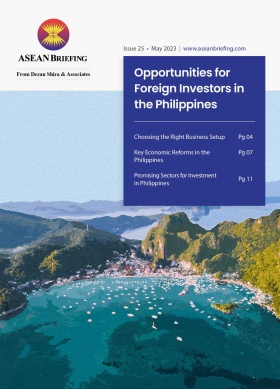Onshore Earnings Retention for Indonesian Commodity Exporters
Indonesia is obligating commodity exporters to retain a part of their foreign exchange earnings onshore from August 1, 2023. The move aims to improve the supply of foreign exchange in the country.
The government is expected to also issue incentives to make this obligation more attractive for commodity exporters.
From August 1, 2023, commodity exporters in Indonesia are expected to retain part of their foreign exchange earnings in local banks for three months. The government hopes that the three-month timeline provides a large enough buffer to weather the risks from a global slowdown in commodity prices this year.
Further, the government hopes the move will bolster the supply of foreign exchange in the country as well as support the rupiah. The ruling, which is enacted under Government Regulation 36/2023 (GR 36/2023), states that exporters of natural resources and their derivatives must retain at least 30 percent of their proceeds worth at least US$250,000 in local banks for three months. Exporters will not be asked to convert their foreign exchange into the Indonesian rupiah.
Exporters must deposit the funds at a foreign exchange bank or at a special account under the Indonesian Export Financing Agency. The country’s central bank has promised competitive returns for exporters who park their funds onshore.
Coordinating Minister for Maritime Affairs and Investment Luhut Binsar Pandjaitan stated that this policy could increase Indonesia’s foreign exchange reserves to US$300 billion this year. As of June, this figure stood at US$137 billion.
Which industries are impacted?
The following industries are impacted under GR 36/2023:
- Mining – including coal, nickel ore, and their related products, oil, gas, and liquified natural gas;
- Forestry – including rubberwood;
- Plantation – including palm oil and its related products; and
- Fisheries.
What has been the response from commodity exporters?
Commodity exporters in Indonesia have expressed concerns over the new rule, considering that commodity prices have slowly dropped while fuel costs continue to increase. On July 17, the Kalimantan 3,800 kcal/kg coal was priced at US$42.50 per metric ton, a decrease from US$66 per metric ton last year. The price reached its peak between November to December 2022 at US$75 per metric ton.
As such, many miners, particularly those with smaller operations are contemplating cutting production, and restarting production after a shutdown period would require large amounts of cash flow.
Further, commodity producers feel burdened by the government’s new royalty formula, which calculates the amount of royalty producers must pay for each metric ton of coal. The amount is based on the grade of coal and is said to be higher than the selling price of the mining companies. Commodity exporters must also fulfill a domestic market obligation in which coal, palm oil, and mineral producers must allocate a minimum percentage of their production to the domestic market, at a discounted price.
Indonesia did impose a month-long export ban on coal in January 2022 over concerns that low supplies to domestic power plants could cause nationwide blackouts. The country aims to produce 694 million metric tons of coal for 2023, an increase from 687 million tons in the previous year. The government also temporarily imposed a ban on palm oil exports between April to May 2022.
Indonesian government preparing incentives
The government aims to offer ‘competitive interest rates’ and tax incentives for exporters that deposit their forex earnings in local banks. The proceeds from an exporter deposited in a local bank could also be used as lending collateral. The government already provides a lower tax rate on earnings commodity exporters receive from interest from their rupiah deposits.
Indonesia’s downstream commodity drive
For 2023, the government is expecting 1,400 trillion rupiah (US$92 billion) in combined foreign and domestic investments and 1,650 trillion rupiah (US$108 billion) in 2024. This is expected to be dominated by investments in the commodity sectors – particularly mining – as the government looks to ban more raw minerals for export.
Nickel has been of particular importance, with Indonesia looking to become an important piece of the electric battery supply chain.
Indonesia is home to the world’s largest nickel reserves, which are at an estimated 22 million tons, and the country is leveraging those reserves as well as other minerals to attract FDI in the development of local smelters. As such, the export value of processed nickel contributed significantly to government revenues in 2022, reaching US$30 billion; a huge increase from just US$1 billion in 2015.
About Us
ASEAN Briefing is produced by Dezan Shira & Associates. The firm assists foreign investors throughout Asia and maintains offices throughout ASEAN, including in Singapore, Hanoi, Ho Chi Minh City, and Da Nang in Vietnam, in addition to Jakarta, in Indonesia. We also have partner firms in Malaysia, the Philippines, and Thailand as well as our practices in China and India. Please contact us at asean@dezshira.com or visit our website at www.dezshira.com.







